- Home
- Rick R. Reed
Dinner at Jack's Page 2
Dinner at Jack's Read online
Page 2
I felt like I didn’t know my own husband anymore. It made the cheese omelet and coffee I’d had for breakfast swirl sickeningly in my stomach. My world, which had been perfectly upright and, yes, even a little boring this morning, had jackknifed into something topsy-turvy, something surreal.
What are my options? I wondered, trudging doggedly through the rain, which was coming down harder now, the skies darkening even more to match my mood. I counted options off as Ruth and I neared the park and lakefront.
One, you could just leave him. At first blush, that option seemed impossible, if only for practical reasons. Ross and I had been together for more than half a dozen years, living together for more than four, and legally married for the last three. Gone were the days when two gay men could just say good-bye and head off in separate directions. Now I would have to contemplate actually getting a divorce—something I hadn’t thought about when they made same-sex marriage legal. I was too busy celebrating our equality. I would have to think about where I would go. Ross was the big breadwinner at our house. He was an anesthesiologist on staff at Swedish Medical Center. He made ten times what I did as a personal chef to a vegan gay couple on Mercer Island.
As I thought of practical things, my blood ran cold. Ross owned everything. The house was in his name. His car—a BMW—and mine—a little yellow smart car—were both in his name. All the bills came to Ross Burkett.
It had always just been easier to let him handle the finances. With the imbalance in our incomes, I never thought much about money. It was always there.
Leave him, I thought, and that money will be gone. Oh sure, you’ll get some kind of settlement—at least I hope I would—after the divorce. But then you have to go through the divorce, the cost of attorney fees, and so on.
I plopped down on a concrete wall just above Lake Union’s churning waters and looked down, thinking, only very briefly, that another option would be to just fling myself into them. I laughed at myself for the melodrama.
How would Ruth get home if I ended it all? That dog was the furthest thing from self-reliant. She was cute, but she wasn’t smart.
Maybe like me? I shook my head. I bent down to scratch Ruth behind her ears, and I pondered option two.
Ignore it and it will go away. I could do this. I could simply move along and pretend I had never cut and pasted the incriminating text. I could convince myself he’d written it but never posted it. Or if he posted it, he never acted on it. Or if he acted on it, it didn’t mean a thing. He loved—loves—me.
Why upset the apple cart?
I tugged at Ruth, who was pawing at something in the muddy grass, and I knew the maneuver, from past experience, was a prelude to flipping over onto her back and rolling around in something vile. “C’mon, let’s go home,” I said to her, maybe a little too sternly.
She stopped at once and peered up at me as if to ask “Are you sure?”
As we headed back up the hill, I considered the third and most sensible option, which was simply to talk to Ross about what I’d learned. Maybe it wasn’t as bad as I thought. Maybe I could shame him into contrition and a promise never to do it again. Maybe we’d decide to have an open relationship. I shook my head at this last thought, knowing it would never work.
I was a one-man kind of man. Always had been. Always would be.
As we mounted the front steps, the conflict-hating side of me had already made up my mind for me.
I would just leave things alone, pretend I’d never seen what I’d seen. It was easier that way. And maybe things would go along just as they had been—somewhat boring, easy, routine, but comfortable. My hurt and shock would scab over soon enough, leaving maybe a tiny scar in its wake.
After all, Ross was my husband. My family. No Craigslist (or whatever) dalliance could change that, could rewrite our history, our love for one another, right?
So why rock the boat?
I was to learn, in only a few hours, that my decision was not mine alone to make. And that, like it or not, I was on the precipice of a brand-new life.
Chapter 2: A Brand-New Life
I know, I know. You were hoping for all the drama, all the confrontation, the Who’s Afraid of Virginia Woolf screaming match and snark. Maybe I’ll get to that eventually, when it doesn’t hurt so much to write about the details. Or maybe I won’t…Maybe I’ll be lucky and can simply move on without too much angst. For now let’s just say that when Ross came home from work that fateful day, things didn’t go as I thought they would. No, I had planned to stick my head firmly in the sand and pretend everything was fine.
Hey, I was almost forty years old, and that was exactly the kind of thing that had worked for me so far.
But I got a shock. He wasn’t prepared to do the same thing. Funny how that works. No, he was all set to give me the farewell speech, the one that goes along the clichéd lines of “It’s not you, it’s me” but which really boils down to “I don’t love you anymore.”
Shrug. Nothing ever lasts, does it?
Sorry to disappoint you, leaving out that big scene full of tears, pleading, accusations, and drama. As I said, maybe one day I’ll be in a better place to tell you all about it. But that day hasn’t come yet.
So let’s talk about now. We now find ourselves here, in Fawcettville, Ohio, the little Ohio River town in which I grew up, some two months later.
Oh Lord, how did I get back here? A place I promised I’d never return to, save for the occasional visit to my homophobic father and my sweet-as-pie younger sister.
I got back here—home—because it’s what a lot of us do when we believe we have nowhere else to turn.
When Ross and I broke up, he gave me a nice little settlement, buying me out of our house, giving me my car title free and clear and even a good chunk of the money in our various accounts. The good side of me believes he did this to be magnanimous, to show compassion and caring for me. The bad side argues he threw a lot of money at me to assuage his own guilt. I could have stayed in Seattle, could have continued my work as a personal chef, banked my money, gotten myself a little apartment in the gayborhood, Capitol Hill, and moved on.
But if I did that, there’d be reminders of Ross wherever I looked. The church we attended, St. Mark’s Cathedral. Our favorite restaurant, Revel, in Fremont. Discovery Park. Green Lake. The Chihuly Garden under the Space Needle. Hell, even Bloody Marys and eggs at the Mecca on Queen Anne on Sunday mornings. And every time I encountered one of those reminders, it would be like ripping the scab off a wound. And you know what happens when you rip off a scab? It bleeds. It doesn’t heal.
But of all the places you could go, you ask, sighing, why in the hell would you pick Ohio? For God’s sake, you had the whole of the West Coast to choose from, for one thing. Palm Springs is crawling with gay men—and it’s always sunny there.
Ohio? Seriously?
The best way to explain it, dubious as it may sound, is to say that Ohio was where my roots were. It was home. Fawcettville is just on the border where Ohio meets the western edge of Pennsylvania and the northern panhandle of West Virginia. It’s pretty there. Tree-covered hills, which in the fall are a riot of color. The river meanders through the town, slow-moving and curving.
And it’s where I grew up, in a little two-story green-shingled house on Etruria Street in the poor neighborhood called West End. Cracked, weed-sprouting sidewalks; rusting, dented cars from the 1990s parked on the street, some actually still running; and an overhanging sense of doom because of the hills crowded around this deep-in-the-valley neighborhood. These were just a few of the features of my hometown ‘hood that Realtors left out of their listings. Dad was a welder, and Mom put all her energies into seeing that my sister and I were fed and clothed. And both of them, I must say, always made sure our home was impeccable, despite the going-to-ruin abodes of our neighbors.
I think it was Mom, though dead now for seven years from ovarian cancer, who really called me back.
When I lost Ross, the first thing I wanted
to do was call up Mom, to cry into the phone about the unfairness of life and love. She would have understood. She would have cared.
Except I couldn’t call. They haven’t yet established phone lines or cellular networks to heaven, which is where I’m sure my sainted mother now resides, playing a game of two-card knock with her Sicilian aunts. Still, I imagine her sometimes, looking down on me and shaking her head. “That poor boy of mine—always unlucky in love,” she’d say to her aunt Sarah, who’d sit next to her around a great celestial poker table.
See, I felt no one would care as much about my loss as Mom. Coming back here was my way of being near to her.
And I do feel her now, all around me. Except those reminders are a comfort, not a pain, as I feared the ones in Seattle with Ross would have been. I know she’s watching over me and that I can come to no harm.
No harm? I wonder if there is such a thing.
I mean, Dad is still here, still living in the green-shingled house on Etruria Street. He’s one reason I wonder about coming back. My mother and her memory offer succor, yes. But Dad? Well, let’s just say he hasn’t ever really come to grips with the whole gay thing. Like, for example, when I called him and told him I was moving home.
“Hey, Dad. How’s things?”
“Oh, you know, could be better. My bursitis is acting up again. Hurts like a son of a bitch. And that damn woman who moved in next door with her cats? They come in my yard and shit all over the place. Swear to God, I’m gonna get out my shotgun one of these days, and—”
I cut him off. I knew from past experience that if I let him, he’d ramble on for an hour or more, cataloging every ache and pain, every perceived slight from the last thirty years. That was Dad for you. Keeping score kept him alive.
“So, Dad? Dad? There’s something I need to tell you.”
“Oh? Don’t tell me you got AIDS?”
“What? No, Dad, no.” My father thought every gay man had AIDS and had held the belief since the early 1990s. “I’m fine. It’s just that Ross and I have split up.”
“Who?” he asked, like an old man who’d misplaced his hearing aids.
I rolled my eyes. He knew perfectly well who Ross was and what our relationship was. I’d brought Ross home for the holidays. Dad was invited to the wedding, even though he couldn’t make it. There was a VFW bus excursion to Atlantic City that weekend, if I recalled right.
“Ross,” I said, calling upon the reserves of patience I’d built up over the years. “My husband. Ex-husband, I guess I should say.” The divorce had just been finalized. Funny, I’d just gotten used to using the word “husband” with my dad, and now here I was, single again.
My father went silent. The whole idea of gay marriage, let alone when applied to his only son, was something he couldn’t yet bring himself to talk about.
“Dad?”
“What?” He’d suddenly gone tense, his tone abrupt.
“Anyway, I won’t bore you with the details, but we’ve gotten a divorce, and I have a nice settlement, enough to live on for a bit, and I thought I’d—” I remember stopping myself there and asking internally, Are you sure you want to do this? Really sure? And even though all the little sensible voices in my head—a whole chorus of them—told me to run in the other direction, I forced myself onward, both in my life plans and in what I wanted to tell dear old Dad.
I continued. “I thought I’d, uh, move back home.”
“What?” My father sounded surprised. “Here?”
“Yeah. To Fawcettville.” I chuckled. “Unless you have some objection?”
The line was silent for several moments. Finally Dad said, “What the hell would you wanna do that for?”
Gee, Dad, thanks for the welcome home. Maybe you might be able to muster up some enthusiasm that your own son would be close by…
He went on, “Son, there’s nothing here. Especially for a guy like you.”
Guy like me? Gosh, whatever could he mean by that?
“What are you gonna do? Work out at the Walmart? Because that’s about it for jobs around here, ever since the mill closed down.”
My father had been a welder at said mill, and it had closed down—about twenty years ago.
“I have some money, as I said.” I felt my stomach begin to flip-flop and beads of sweat pop out on my forehead. These were good, solid signs that I should rethink my plan. “With the cost of living there, I wouldn’t even need to find anything right away. I could buy a house. Outright.”
“The damn cost of living is so low in Fawcettville because no one wants to live here!” Dad thundered at me. “There’s nothing here, son! Don’t be an idiot.”
And my father actually hung up on me.
But did I take that as, oh, I don’t know, a sign or an omen that maybe I might want to steer clear of my old hometown? Oh no. Perversely, I think I was even more determined, after that phone call, to make a home for myself and Ruth back on the pebbled shores of the Ohio where I grew up.
So let me take you back to that first day arriving in town. You’ll see that I was not making a mistake.
Really, I wasn’t.
Chapter 3: The Bitch Is Back
I sat in the yellow smart car I had once gaily dubbed Marilyn Monroe and stared at the rain pouring down the windshield, obscuring the orange Vacancy sign blinking on and off just outside, making an expressionist blur of it. I turned to Ruth, who sat on the seat next to me, and said, “I thought we left the rain in Seattle.”
“Apparently not,” Ruth replied. She yawned and licked her lips.
Now, before you start thinking I had completely wigged out, let me acknowledge that I ascribe appropriate dialogue to my pug in my head. It’s all imaginary. I don’t actually hear her voice.
Much.
Anyway, Ruth followed my gaze to the rain-smeared windows. She was probably wondering why we’d ended up here. She’d been a good traveling companion the last four days as we made our way eastward across the country, singing along with me as I tuned the Sirius radio to the ‘80s disco station and listening intently to the anecdotes and opinions offered on NPR. All the while, Ruth was most likely anticipating some fabulous destination as a reward for all the miles rolling underneath the smart car’s wheels. After all, all good things come to those who wait, right? At least that had always been Ruth’s philosophy as she counted down the minutes by her stainless steel food and water bowls in our old kitchen in Wallingford. She’d lie there for a bit, and magically, food and water would appear. It never failed.
So maybe this long car ride would lead to something magical—and wonderful. Ruth had even behaved, never once having an accident in the car and sleeping dutifully each night in whatever no-tell motel I had selected from the highway as we drove by.
I could see Ruth’s dark brown eyes peering through the rain’s wash and staring out at the one-story cinder block motel whose office was just a few feet away. I imagined her thinking “What the hell? We drove all this way for this? I should have stayed with Ross.”
I had to admit, I was on the same page with my dog. The Panorama Motel had been around since I lived here full time, and that was, like, twenty years ago. Even then it was run-down, and I’d always wondered who stayed in its dozen or so rooms, with their rusting and dented orange metal doors. Even kids looking for a place to have a quickie avoided it. On the plus side, it did sit on a bluff overlooking the Ohio River as it curved southward toward West Virginia. “Don’t be put off, Stinkerbell,” I told Ruth. “I’m sure the views from every room are fabulous.”
Ruth looked at me as though she didn’t believe me. Maybe it was because I myself could hear the lack of conviction in my voice.
“Well,” I said. “There really aren’t any other options, as far as motels go. As far as I know. Unless someone has built lodgings since I left. And who would be foolhardy enough to do that?”
Ruth didn’t have an answer. She circled once or twice, then lay down on the seat, her head resting on her paws. In instants, she beg
an to snore.
But the more I stared at the cinder block motel, the more I was certain I was making a mistake. I mean, yes, there were no other hotel/motel options until you went a little farther east and hit the outskirts of Pittsburgh, but I did have one other choice.
No. Not Dad. Never Dad. I could not spend one more night under the roof of that green house with the white trim. He would drive me completely nuts before dawn even arrived.
But there was Mary Beth. My little sister. My parents’ late-in-life baby who came along a dozen years after I did. My mother called her “the miracle baby.” My dad just referred to her as “the accident.” She’d grown up spoiled rotten by the two adults and one almost-adult living in the house with her.
As a sissified adolescent boy with few to no friends, Mary Beth got a bigger dose of love and protection from me than she would have gotten from, say, a more popular and sports-inclined older brother. I was laughed at and called names because I pushed Mary Beth around the neighborhood in her stroller. This was not something young males did in our ‘hood. No, boys my age were busy fixing cars, debating the merits of the Browns versus the Steelers, and wondering if they’d ever succeed in getting a girl to touch them, you know, down there.
I could never talk to those guys, let alone hang with them. They’d never have understood my obsession with 1960s horror movies, the novels of Ira Levin, or how to make a perfectly crispy pizzelle waffle cookie.
But Mary Beth loved having her big brother around, especially since she had a dad who didn’t pay much attention. Back then, Dad was all about the VFW and the American Legion, two places he divided his time equally between, nursing beers, watching sports, and shooting the shit—his phrase, not mine—with buddies he’d known all his life.
We were all quite comfortable having Dad outside the house, especially me.
Anyway, I’m rambling, winging my way heedlessly down memory lane when this is supposed to be about a new beginning.
It had stopped raining. The Panorama looked even drearier in the washed-out light of late afternoon, damp and still dripping. A carton from McDonald’s skittered along the sidewalk in front of the row of doors, and I wondered if that’s what passed for room service in this dump.

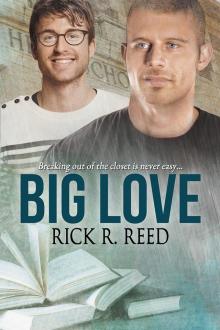 Big Love
Big Love Blue Umbrella Sky
Blue Umbrella Sky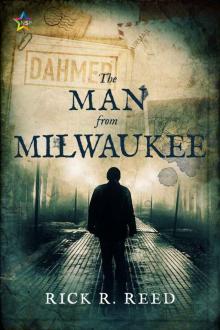 The Man From Milwaukee
The Man From Milwaukee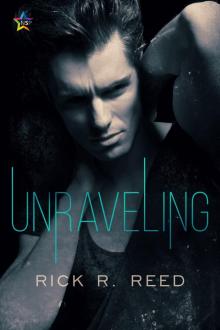 Unraveling
Unraveling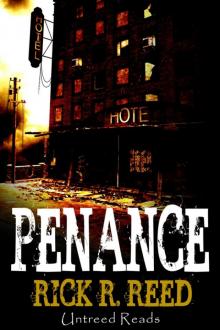 Penance
Penance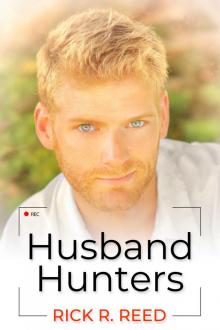 Husband Hunters
Husband Hunters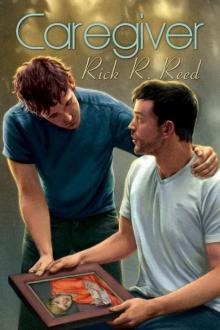 Caregiver
Caregiver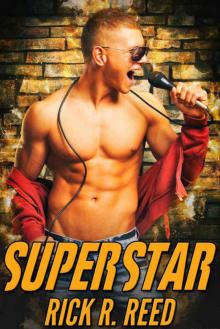 Superstar
Superstar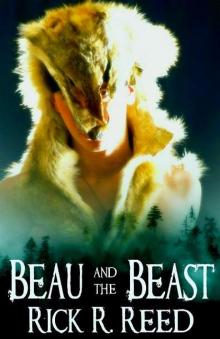 Beau and the Beast
Beau and the Beast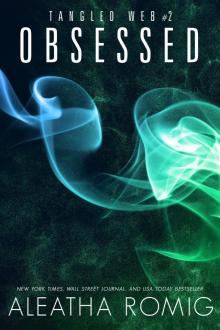 Obsessed
Obsessed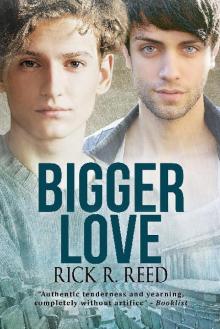 Bigger Love
Bigger Love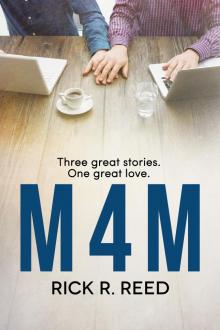 M4M
M4M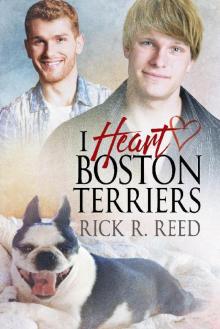 I Heart Boston Terriers
I Heart Boston Terriers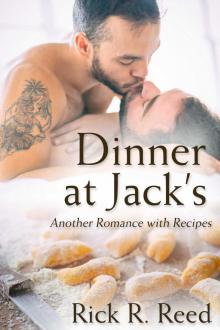 Dinner at Jack's
Dinner at Jack's A Dangerous Game
A Dangerous Game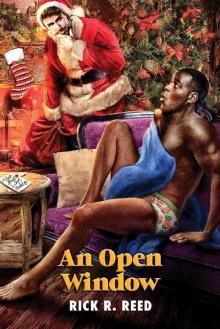 An Open Window
An Open Window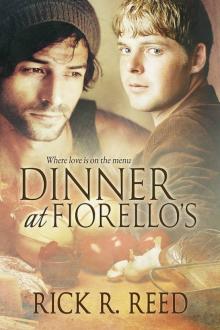 Dinner at Fiorello’s
Dinner at Fiorello’s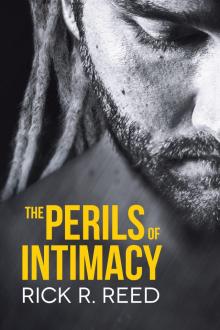 The Perils of Intimacy
The Perils of Intimacy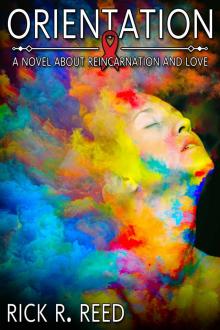 Orientation
Orientation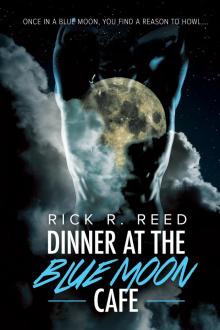 Dinner at the Blue Moon Cafe
Dinner at the Blue Moon Cafe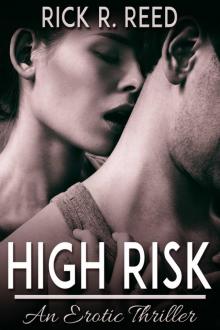 High Risk
High Risk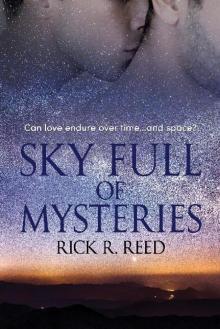 Sky Full of Mysteries
Sky Full of Mysteries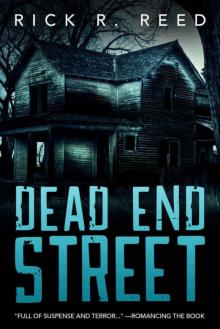 Dead End Street
Dead End Street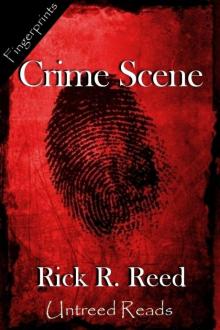 Crime Scene
Crime Scene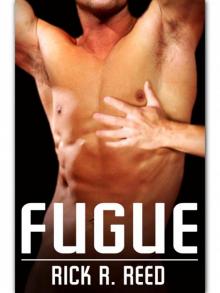 Fugue
Fugue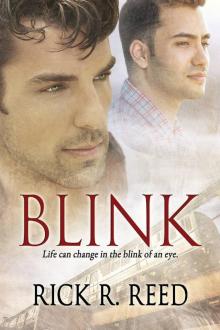 Blink
Blink Lost and Found
Lost and Found